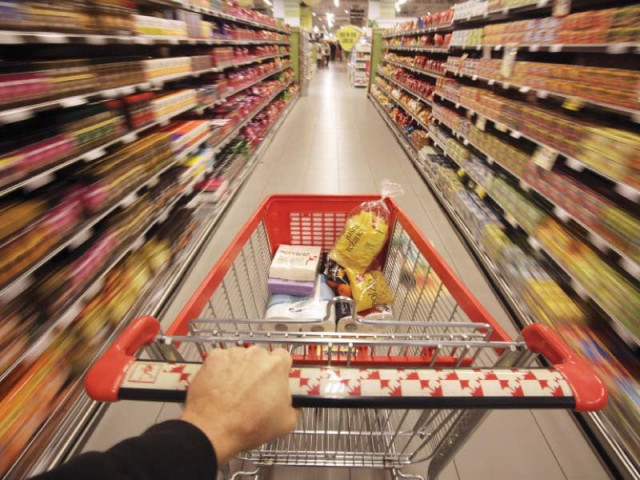High food prices fuel short-term inflation
Sensitive Price Indicator rises 0.11% week on week

Pakistan’s inflation reading ticked up 0.11% in the week ended July 11, 2024 compared to the previous week, fueled by the hike in food prices, and maintained its uptrend for the second successive week.
According to the Pakistan Bureau of Statistics (PBS), the short-term inflation gauge, called the Sensitive Price Indicator (SPI), registered a surge of 23.33% when compared with the same week of last year.
The rise in week-on-week inflation was led by the farm broiler chicken, which became costlier by 16.34% to Rs373.25 per kg in the week under review compared to Rs320.84/kg in the previous week.
It was followed by milk powder (390-gram polybag of Nido), which got expensive by 6.07% to Rs984.38 per pouch against Rs928.07/pouch a week earlier.
The price of gram pulse rose 3.47% to Rs329.92/kg compared to Rs318.87/kg last week. Lawn, or linen cloth, (printed Gul Ahmed/Al Karam) cost 2.43% more at Rs608.59/metre compared to Rs594.17/metre earlier.
The rate of long cloth (Gul Ahmed/Al Karam) increased 1.58% to Rs917/metre from Rs607.38/metre in the prior week.
Prices of other essential commodities rose up to 1.37%, which included fresh milk, masoor pulse and moong pulse.
The SPI-based short-term inflation index comprises 51 essential items whose data is gathered from 50 markets across 17 cities in the country.
During the week ended July 11, 2024, prices of 23 (45.10%) items increased, rates of six (11.76%) items decreased while prices of 22 (43.14%) items stood unchanged compared to the preceding week.
The year-on-year inflationary trend, which depicted a surge of 23.33%, was primarily driven by gas charges for Q1, which rose 570% compared to the same week of last year. Tomato price soared 124.55% and onions became costlier by 86.17%.
Other commodities rose up to 55% year on year, which included chilli powder, gram pulse, garlic, milk powder, moong pulse, shirting, salt powder, gents sandal, liquefied petroleum gas, beef, mash pulse and electricity charges for Q1.
Pakistan’s benchmark monthly inflation reading, measured through the Consumer Price Index (CPI), escalated to 12.6% in June 2024 from a two-and-a-half-year low of 11.8% in May 2024.
Average inflation is projected to slow down to 11-12% in the current fiscal year, which began on July 1, compared to near 24% rate in the previous year.
The downward trend is expected to force the central bank to aggressively cut its benchmark policy rate in FY25 and make bank financing affordable for businesses – a must for propping up economic activities and growth in the country.



















COMMENTS
Comments are moderated and generally will be posted if they are on-topic and not abusive.
For more information, please see our Comments FAQ